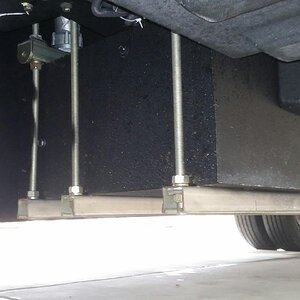Jim
RVF Supporter
- Joined
- Dec 18, 2019
- Messages
- 4,665
- Location
- North Carolina
- RV Year
- 2020
- RV Make
- Newmar
- RV Model
- Essex 4543
- RV Length
- 45
- Chassis
- Spartan
- Engine
- Cummins / I6 Diesel Pusher 605HP
- TOW/TOAD
- 2016 Jeep Rubicon
- Fulltimer
- No
I would really like to hear more about this, @sheridany. Is there a slightly used Jeep parked on the side of the 405?You haven’t experienced the thrill of excitement until your toad tire starts deflating in a LA traffic jam at 4:30 pm on the freeway and the shoulder is closed.













